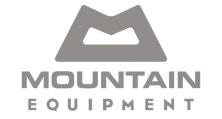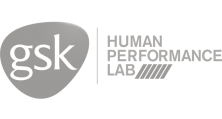Tracking
the Journey
-
Distance to go:
0 Mi
Distance
Ben and Tarka will cover 1800 miles starting from Scott's Terra Nova Hut at the edge of Antarctica to the South Pole and back to the coast again. That's equivalent to 69 back-to-back marathons hauling up to 200kg each (the weight of roughly two adult men) of kit and supplies necessary to survive.
Distances here are shown in statute miles.
Resupply (Day 70)

I'm sorry to have kept you waiting for this update; you might have seen from the tracker that we haven't moved for a while, and you may be wondering what's up. For more than a decade I've been trying to get to the start line of this expedition, and for more than a decade I've been talking about how it would be a journey that was at the very limits of human endurance. Today, in hindsight, I wonder if I really appreciated how prescient and accurate that glib statement was, and yet how little I knew about where that journey would lead me, and what it would take for Tarka and me to dig so deep.
Part of the appeal of this expedition to me was that it seemed just about possible. Roger Mear, one of Robert Swan's team that completed Scott's one-way journey to the Pole in the mid-eighties said they didn't entertain the thought of unsupported return journey as it was plainly "impossible" to haul enough food and fuel. Both Scott and Shackleton, of course, had pre-positioned depots the year before their Pole attempts, and then had further teams hauling provisions for them all the way to the Plateau, peeling away one by one like booster rockets falling back to earth. Scott himself didn't put his own sledge harness on until he got to the base of the Beardmore Glacier, and at most his men pulled just over 90kg each.
By contrast, Tarka and I pulled 200kg each at the start, heavier loads per man than Scott's weakest two ponies each dragged. Peter McDowell, one of the senior directors of ALE, described it as "Fifty percent harder" than anything he had seen in his time supporting Antarctic expeditions. We gambled on getting faster as our loads lightened, and based on our training and experience, Tarka and I had secretly set ourselves the goal of covering 42km -a full marathon- per day on our return from the Pole to the Beardmore. We planned our food and fuel to match, going light and -we hoped- fast, with almost no leeway for error or a let-up in pace. This is why we did such a big day to turn at the Pole, and why we've had no time to rest properly since. We had two-and-a-half hours' sleep on our Pole day, and haven't had more than five hour's sleep for nearly two months. Our only full rest day was 55 days ago. The toll this effort has taken has been quite something, and the speed we hoped for never came.
Our near-empty sledges still felt heavy and the energy that carried us up the Beardmore, and indeed to the Pole itself in record time despite dragging more than anyone in history, started to wane dramatically in the last few days. What's more, we've been running lower on food as we failed to meet our mileage targets. Six days ago we started to eat half rations, and I've felt shattered every day since, aware that I was depleting my body at a rate that might have been reckless. My stomach growled permanently, my ribs became more prominent by the day, my legs were painfully weak and my mind and thoughts and decision-making grew foggy and dim. On our second day of half-rations I got dangerously cold when I had to remove my outer jacket in the middle of a storm to add more insulating layers, and it was only Tarka's help -zipping up my jackets like I was a toddler while my cold hands hung useless by my side- that got me out of trouble and through a very dark day indeed.
I've been reluctant to say so (sorry mum!) but we've both been on the ragged edge for a while now, and on New Year's Eve, we set out on what was to prove the hardest day of the expedition. It was Tarka's turn this time to struggle, and I'd reached a state where I was barely able to realise it. The windchill was -45 degrees centigrade when I recorded it, and we stayed outside for more than 13 hours, on fifty percent of the food I'd intended and wearing almost all the clothes we had with us. At breaks we would eat halved energy bars and our normally-sweet drinks tasted like lukewarm dishwater with a hint of lemon. Towards the eighth or ninth hour Tarka's normally rock-steady metronomic pace started to become erratic and he seemed to stagger and stumble more than usual on ridges and divots in the snow surface. He stopped mid-session, in a howling blizzard, to remove his outer gilet (the Primaloft-insulated Mountain Equipment Compressor vests that have served us so well here) and flipped back his hood as if he were too hot. I know -as a professional leader of expeditions to the coldest places on the planet- that these are tell-tale signs of hypothermia, yet I was on the limit myself and failed to react. All I can remember from that afternoon that drifted into evening, with the dim sun slowly wheeling around us and the horizon erasing itself and reappearing again in the whirling fog of spindrift, was being unable to think of anything more than the battle raging in my head against the part of me that wanted so desperately to stop. Just to lean my shoulders on my ski poles and slump forwards against the resistance of my harness and rest, and to hell with the consequences. I wondered at times if I fell over whether I'd have the strength to stand up again, the energy to yell for Tarka, or whether he'd even notice me calling over the noise of the wind.
When I took over the lead I kept turning back to see Tarka -normally right on my heels- drifting further behind me. I stopped a few times to let him catch up, but it was too cold for me to wait for more than a minute or two before I started shivering, so I raised a single ski pole, he raised his in reply -a signal we've often used here- and I shuffled on. After doing this a few times, with Tarka receding as if the horizon was sucking him backward like quicksand, he stopped raising his pole. I waited, but by now he was a tiny dark speck in the white that took forever to grow. I unclipped my harness and started to put the tent up, feeling dizzy and breathless myself, and taking what seemed like ages to match the poles to their corresponding fabric sleeves, like a drunk taking some sort of coordination test. "Sorry I'm late", said Tarka as he arrived, but it sounded like someone else entirely, his words mumbled and slow.
As we finished slowly setting up camp, I saw he was fumbling in his giant outer mittens with the plastic buckles that strap our sledges closed. "I can't feel my hands", he said through a mask encrusted with ice, his shoulders slumped forwards. As we zipped ourselves into the porch of the tent to take our boots and outer layers off before climbing into our sleeping bags, we saw that the tips of his thumbs were at least badly frostnipped, if not lost entirely to frostbite. I remember feeling a mixture of fear and anger, both at him and at myself for letting this happen. I pulled up my jacket and fleece so he could warm his hands in my armpits, and to my relief the colour and circulation started to return. We ate our watery half-dinners in near-silence and fell asleep exhausted and cold, knowing we would have to match the same distance the next day.
Our depot was still 74km away and we had barely more than half a day's food to reach it; eight energy bars each, half a breakfast and half an evening meal. 16km into the following day Tarka started to slow again as he led, before stopping entirely and waving me forward to talk. "I feel really weak in the legs again", he said. "OK. What do you want to do?" I answered snappily, before realising this was on me. I came here to be challenged and tested, to give my all to the hardest task I have ever set myself and to the biggest dream I have ever had. And here was the crux. This was the moment that mattered, not standing by the Pole having my photograph taken, but standing next to my friend, in a howling gale, miles away from anyone or anything. "Let's put the tent up", I said, "I've got an idea".
My idea was to call for a resupply. To have more food and fuel flown to our position so that we could rest and recover before finishing this journey. A decision that changes the status of this expedition from "unsupported" or "unassisted" or whatever semantics you wish to choose to the opposite. Part of me also feels it inevitable that we and this journey would face critics even if we'd done it in period clothing eating pemmican and pony meat. Yet in an instant I realised that my and Tarka's lives are not something I wanted to gamble with, and that we had given our all. We were lucky that neither of us had collapsed the day before, and I knew we couldn't possibly have hoped to recover on our meagre rations from the physical holes we'd dug ourselves into.
At the other end of the world, on the other end of a crackling and hissing satellite phone line, our expedition manager Andy Ward sprang into action, and things happened incredibly quickly, with a ski-plane carrying eight days' of rations landing twelve hours later. The weather worsened as we waited and I feared the flight would be aborted, or that a bag would be air-dropped at speed and lost in the blizzard, but in a beautiful twist of what some might call fate, the pilot was Troy, the same man that picked me up from the Arctic Ocean after my 72-day solo expedition nearly ten years ago, and in my eyes the finest polar pilot in the world. The Twin Otter appeared through a tiny hole in the rolling cloud and swang over us once before landing on the ridged and uneven snow surface and taxiing right up to our tent, its wing-tip almost above our roof. The wind was still blasting and the plane's skis were almost hidden under the blowing snow. "I'm sorry about the weather", I said to Troy, amazed that he'd been able to land. "Oh, it was fine", he replied modestly.
The hours we spent waiting were, I fear, dark ones for Tarka. He seemed a broken man. "It'll look like my fault", he said, "and that's a good thing for you." This was Tarka through and through. Weeks ago he said humbly, "If there are media at the airport when we get back, I'm happy to help with the bags while you talk to them." He finally admitted last night that when I was struggling (and if I'm honest now, on the verge of wanting to quit) a few weeks ago he'd taken food bags from my sledge while I was in the tent to help lighten my load without telling me, so he'd been pulling more weight than me for weeks.
Tarka is the hero here, and the irony of our situation is that I would never have made it to this point without his herculean efforts; his giving everything he has to this goal. I'm proud of how deep we have each dug, and I am amazed and humbled by Tarka's sacrifice. He has pushed (or indeed pulled) himself until he dropped, and I'm also as exhausted as I've ever been. For weeks now I have slept fitfully and woken up cold. We are both alarmingly lean, and we have both struggled for a while to maintain trains of thought or decent conversations. I suspect my writing has been going downhill too.
And now we are lying here resting, like two new men after ten hours' sleep, full-bellied and warm again for the first time in weeks, before we move north again to complete this unfinished journey. Our status has changed, but how little that means to me now. Scott didn't wear his harness until the Beardmore and would have been "supported" in modern polar parlance. I don't think we made any mistakes, and I don't think we could have done anything more, or pulled any more food up here. We travelled 5.6km per day at the start with 200kg per man, greater loads than each of Scott's weakest ponies hauled.
I know a few commentators have suggested that we've been "lucky" with weather and surface compared to a century ago, but I don't believe this is true. Our luck is in having GPS units that allow us to ski blind into whiteouts, in having synthetic skins on our skis that allow us to grip, and in having the nutrition and fitness and clothing to survive dragging loads that would have been unthinkable in that era. We have had no choice but to move every day, whatever the weather, for more than 70 hours per week of intense physical exertion, twice as much as a Tour de France cyclist, over ten weeks and not three.
Now my head is clearer and my body is recovering, I think of status and records and achievement and impermanence. Every gold medal one day ends up in a collectors' cabinet, an auction lot or a drawer in an antique shop. Trophies oxidise, the ribbons of rosettes curl and fade. I don't know where my proudly-won Scout badges are now. I hope our journey has not been diminished in your eyes now it is "imperfect". Yet of course for us humans, perfection can never really be reached, contentment is either here today, with the striving and the mess we all inhabit, all open loops and half-finished lists and could-do-better-next-times, or we will never find it. And the biggest lessons -to me at least- of this very long, very hard walk, are perhaps that compassion is more important than glory. Friendship and kindness and taking care of each other -like Tarka secretly removing weight from my sledge- matter more than achievement or status. The joy of being outdoors and alive in the wild, pushing ourselves harder than anyone will ever understand, will I think in time prove more wholesome and satisfying than the pride of any public recognition on our homecoming.
We're resting up today, we're safe, we're well, we'll do a shorter day north towards our mid-plateau depot tomorrow and we'll carry on home from there, retracing our steps to Ross Island. We're still in the process of making a journey that's never been done before, and I hope you'll still keep following. Tarka and I are humbled and grateful for your interest and support, and I am more thankful than I know how to say for Intel and Land Rover and all of our other partners for standing by us in our most trying days. Onwards.










Comments
# Richard McGehee, January 2nd 2014
We are glad you were able to recognize the signs of hypothermia in time. Failure to recognize it is one of its dangers. There will be plenty of time for more adventures. Looking forward to more blogs.
Happy trials to you.
# Pete Heady, January 2nd 2014
Ben,
You and Tarka have performed admirably, hauling more than simply a sledge and 200kg of supplies. I have read very word you have passed along and felt as if I were traveling along with you and Tarka, just outside the frame of your photographs, silent witness to a remarkable feat of human endurance. Congratulations on all you have accomplished, all the correct decisions for all the right reasons.
Keep dreaming for without them we are all diminished.
Pete
# Rebecca Hogue, January 2nd 2014
I am glad to hear you are safe! I was worried when we didn’t see an update - and found myself checking regularly awaiting an update. I’m relieved to hear you called for help when you needed it. I hope the days rest gives you new found strength for the journey home!
# Tom, January 2nd 2014
It was the right thing to do! It won’t change your accomplishments at all. You are an inspiration!
# Luke Brown, January 2nd 2014
Sounds like the answer to your question of why you leave the house. Well done, gents.
# Ian , January 2nd 2014
Keep going guys.. And correct decisions to realise that you were in trouble. There’s some ‘negative’ and petty comments on here and I feel today’s update is not the time. I would also like to say that I eagerly await the blogs of your unsupported South Pole missions.
# mikef, January 2nd 2014
Nothing to be sorry for or explain. You still have a long journey ahead of you and anyone who seems to think you trip was diminished I’m sure is welcome to try it themselves. You are both alive and safe and that (in the end) is all that matters. I have been following your journey and will continue to do so with the same excitement that I had when I discovered your journey. Good luck boys!
# Diane Griffith, January 2nd 2014
I said a few weeks ago that I couldn’t think of any two people on the planet that I admire more than you and Tarka, Ben. That goes doubly now as it takes so much more courage and strength of heart to call for and accept help when it’s required than to soldier on in some macho delusion of “must make the goal at all costs.” You’ve both proven over and over again that you are incomparable athletes, expert logisticians and way finders, but now you’ve demonstrated your most estimable qualities: boundless compassion and true wisdom. Safe home, dear fellows.
# Kristoffer, January 2nd 2014
For me, “expert logisticians” is very much in doubt, as ending up with half a day’s rations despite a prior period of half rations is not many people’s definition of “expert logisticians”. Furthermore, Ben’s frank admission of failing to meet mileage targets runs counter to what we have consistently heard from the expedition staff here, which consisted of them saying “they are on schedule and making great progress” ad nauseam.
# Diane Griffith, January 2nd 2014
Kristoffer, all I can say is I wish we could vote you off the island now, so to speak.
# Alastair Humphreys, January 2nd 2014
Kristoffer:
I suggest you read this: http://www.theodore-roosevelt.com/trsorbonnespeech.html
Alastair
# Andrea, January 3rd 2014
If may I, it is visible now that here was invisible the hell of the expedition.
# Amy, January 2nd 2014
So grateful to hear that you managed to recognise what was happening. It could have been so very different and there is no failure here… You’re both alive and such an amazing inspiration. Myself, Richard and the kids feel so lucky to be able to follow your amazing journey. Stay safe, stay warm and stay alive!! Xxx
# Marlene Speth., January 2nd 2014
Dear Ben and Tarka,
I have been reading your blog all along! Amazing achievement both physically and mentally!
You both have been training, working and preparing very hard for the trip and you both have shown extreme mental strength! Keep it up :).
Marlene.
# Richard Crawford-Small, January 2nd 2014
“Sorry I’m late”. That is classic Tarka! I’ve not had the pleasure of meeting you Ben, but you are both heroes - Tarka for being Tarka and going above and beyond, and you for being an exceptional leader and not allowing pride to get in the way of doing the right thing. Thank you for looking after my friend, enjoy the rest, the full belly and get home safely.
# Bill Taylor, January 2nd 2014
Your report gets over to me how close you two were to being lost to us. I am glad you made the call, but it was almost to late. One of the reasons for two is for both to keep a watchful eye on the other. The risk being you both go down together.
Good call! What a support team! Stay safe, well done and thanks for the blog. They failed to communicate how much was being taken out of you, until todays.
# Mark Nichols, January 2nd 2014
As Theodore Roosevelt said, “It is not the critic who counts; not the man who points out how the strong man stumbles, or where the doer of deeds could have done them better. The credit belongs to the man who is actually in the arena, whose face is marred by dust and sweat and blood; who strives valiantly; who errs, who comes short again and again, because there is no effort without error and shortcoming; but who does actually strive to do the deeds; who knows great enthusiasms, the great devotions; who spends himself in a worthy cause; who at the best knows in the end the triumph of high achievement, and who at the worst, if he fails, at least fails while daring greatly, so that his place shall never be with those cold and timid souls who neither know victory nor defeat.”
I admire the courage to set off on this journey and I am awed by the courage to know your limits and to honor them.
# Kristoffer, January 2nd 2014
“Criticism may not be agreeable, but it is necessary. It fulfills the same function as pain in the human body. It calls attention to an unhealthy state of things.”
-Winston Churchill
“To announce that there must be no criticism of the president… is morally treasonable to the American public.”
-Theodore Roosevelt
“Few people have the wisdom to prefer the criticism that would do them good, to the praise that deceives them.”
-Francois de La Rochefoucauld
# Jerry Colonna, January 2nd 2014
Of course the value of criticism is proportional to the intent and credibility of the critic. Credibility borne from having walked a similar path, hauled a similar load, sports an invaluable . Such perspective when shared with an intent to hearten and strengthen, to push onward, is best of all.
# John Brain, January 2nd 2014
Kristoffer. Clearly there are a number of questions to be asked and answered. I have, and for sometime have had, a number of major concerns. But surely there is a time and a place for everything and this is not the time. Given their current circumstances, Ben and Tarka have demonstrably made the right call today, and we must all be thankful and continue to offer personal and moral support for what is already quite an achievement.
# Kristoffer, January 2nd 2014
John, Ben has certainly made the right call.
Jerry, have you learned nothing from Swithinbank’s incorrect advice regarding crevasses on the plateau? Experience does not automatically guarantee credibility, or in the case of Fiennes, even honesty.
# Alastair Humphreys, January 2nd 2014
Kristoffer: seriously, dude. I don’t know who you are. But I’d suggest that doing something a fraction as inspiring, challenging and daring as this expedition would be a more worthwhile use of your time than commenting on this blog.
# David B., January 3rd 2014
You guys have reached the human limits and for that, all I can say is RESPECT.
You both can only be consider as great achievers.
And you will come out of this exped with such a unique friendship for each other, one of the best gifts of this ‘change of status’ part.
Thanks for letting us be part of it, it’s a great honor.
# Rosie Vidovix Unsworth, January 2nd 2014
Ben and Tarka
There are those who dream
And there are those who dare
We all know which category you both belong to. You are fine men, please don’t let this change of status diminish your accomplishment.